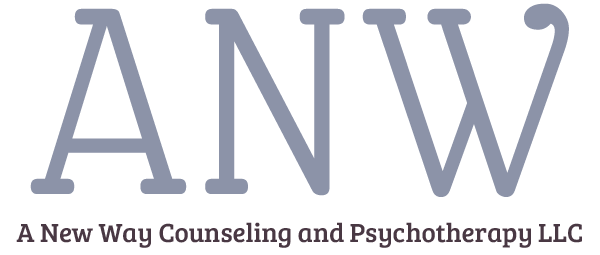Empathy is the cornerstone of our practice.
Visit our Locations
1124 US Highway 202 Suite B10 Raritan, NJ 08889
953 US highway 202 N Branchburg, NJ 08876
Give us a Call
Send us a Message
Opening Hours
Mon - Friday:
8AM - 9PM
Clinician Blog Posts

The Power of Nature and Its Effects on Our Mental Health
The Power of Nature and Its Effects on Our Mental Health
By Grace Hickey, LAC, MS
Have you ever listened to the sound of ocean waves crashing ashore and felt a lingering sense of peace? Or perhaps felt the inclination to go outdoors and get fresh air in hopes to clear your mind? Maybe instead you enjoy surrounding yourself in lush greenery, attuning to the calming sounds of rustling leaves. If any of these scenarios resonated with you, you have likely experienced the abundant benefits our natural world can provide.
As a Licensed Associate Counselor, I am often thinking and rethinking different modalities to utilize within my therapeutic practice. One of my favorite go-to “homework assignments” that is organic, effective, and typically free is simply spending time in nature and how this has been proven to assist in the healing process. This concept has been coined Ecotherapy; ecotherapy stems from the belief that we are not separate from our environment and can find emotional, physical, and mental benefits by submerging ourselves in the natural world (Goodtherapy, 2018).
Ecotherapy can certainly lead to the aforementioned feelings of peace and clarity, but there is also an ever-growing body of evidence-based research to support it. In a study from 2013, researchers analyzed brain-wave patterns between individuals walking through green spaces versus more urbanized spaces. The results indicated that those walking through green spaces had brain-wave patterns similar to being in a meditative state comparative to those in the urbanized spaces (Aspinall et al., 2013).
A different study from 2002 directly correlates regular interactions in nature with lower stress levels (Kohlleppel & Bradley, 2002). Numerous studies have indicated additional benefits, such as: a reduction in depressive symptoms (McCaffrey, 2017), quicker recovery rates from medical surgeries (Summers & Vivian, 2018), higher concentration levels in children with ADHD (Kuo et al., 2004), and an overall enhanced well-being (Greenleaf et al., 2014). With population increases invariably leading to an influx in urbanization and shifting into a progressively technical world, it can be all too easy to become disconnected from the natural world.
When we become consumed with our digital world, i.e. computers, tablets, phones, TVs, and artificial lighting, we are frequently and consistently exposed to something called positive ions (Sue, 2022). Positive ions are linked to things like fatigue, lower concentration levels, irritability, and anxiety (Sue, 2022). The opposite of this would be negative ions, which are thereby linked to improved immunity, regulated moods, increased cognitive performance, lower stress levels, and better sleep. Negative ions are found naturally in grass, rain, oceans, waterfalls, and forests. This is all technical speak to say that if we are ‘positively charged,’ physically spending time in nature can balance us out with a healthy ‘negative charge.’
When outside in nature, a simple technique that anyone can employ is a form of grounding that involves sitting or planting your bare feet in/on the natural ground, such as grass or sand. This allows your body to draw in those negative ions from the earth and get them flowing throughout your body.
An additional important lesson about nature: it has an endless metaphors that can apply to our lives, such as the idea that nature is perfectly imperfect. Our society emphasizes the impossibility of perfection; whether it be in our appearance, our relationships, our work, even in school – the list goes on. It is important to remember that nothing in nature is perfect, which allows for unique beauty: trees are not uniform in that they have twists, bends, and splits; the striking lotus flower blooms in muddy water; and delicate seashells often have scratches and cracks.
Nature is not flawless and neither are we.
Our imperfections are uniquely beautiful. Challenge yourself to embrace your imperfections to live authentically and be freed from the confinements of societal perfectionism.
And as for your homework: sit outside, absorb some of those negative ions, and get your natural healing process underway.
Edited and approved by Clinical Supervisor: Christie Carrera, LCSW, MSW on 09/20/2022
References
Aspinall P., Mavros P., Coyne R., Roe J. (2013). The urban brain: analysing outdoor physical activity with mobile EEG. Br. J. Sports Med. Arch 6:2013 10.1136/bjsports-2012-091877
GoodTherapy. (2018, August 15). Ecotherapy / Nature Therapy. GoodTherapy. Retrieved from https://www.goodtherapy.org/learn-about-therapy/types/econature-therapy
Greenleaf A. T., Bryant R. M., Pollack J. B. (2014). Nature-based counseling: integrating the healing benefits of nature into practice. Int. J. Adv. Counsell. 36 162–174. 10.1007/ s10447-013-9198-4
Jewell, T. (2019, September 11). Do negative ions affect people? if so, how? Healthline. Retrieved August 14, 2022, from https://www.healthline.com/health/negative-ions
Kohlleppel T., Bradley J. C. (2002). A walk through the garden: can a visit to a botanic garden reduce stress? Hort Technol. 12 489–491.
Kuo F. E., Taylor A. F. (2004). A potential natural treatment for attention-deficit/hyperactivity disorder: evidence from a national study. Am. J. Public Health 94 1580–1586. 10.2105/ AJPH.94.9.1580
McCaffrey R. (2007). The effect of healing gardens and art therapy on older adults with mild to moderate depression. Holistic Nursing Pract. 21 79–84. 10.1097/01.HNP.0000262022.80044.06
Sue. (2022, January 19). When a negative is positive – how exposing yourself to more negative ions can have a positive effect on your health. Holistic Lakewood. Retrieved August 14, 2022, from https://holisticlakewood.com/when-a-negative-is-positive/
Summers JK, Vivian DN. Ecotherapy - A Forgotten Ecosystem Service: A Review. Front Psychol. 2018 Aug 3;9:1389. doi: 10.3389/fpsyg.2018.01389. PMID: 30123175; PMCID: PMC6085576.
Walther, A. (2021, January 14). What is Wabi Sabi? the elusive beauty of imperfection. Japan Objects. Retrieved August 14, 2022, from https://japanobjects.com/features/wabi-sabi
Accepted Insurances
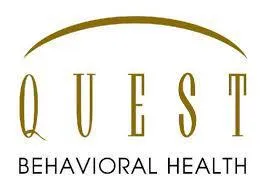
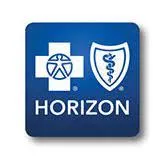

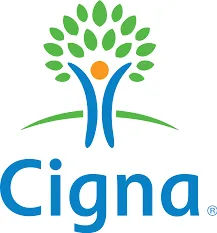
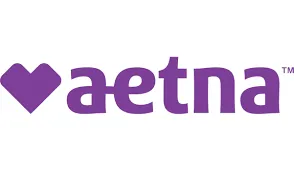
Visit our Location
1124 US Highway 202 Suite B10 Raritan, NJ 08889 and at 953 US highway 202 N Branchburg, NJ 08876
Give us a Call
Send us a Message
About Us
We offer counseling and psychotherapy in New Jersey, Pennsylvania, and New York.
Opening Hours
Monday - 8AM - 9PM
Tuesday - 8AM - 9PM
Wednesday - 8AM - 9PM
Thursday - 8AM - 9PM
Friday - 8AM - 9PM
Saturday - CLOSED
Sunday - CLOSED
© Copyright 2022 A New Way Counseling and Psychotherapy LLC| All Rights Reserved
Schedule your next
